
Enchanting Motael: The Heartbeat of Dili
Motael, nestled in the vibrant city of Dili, is a captivating blend of history, culture, and natural beauty. As one of the oldest neighborhoods in Timor-Leste’s capital, Motael offers tourists a unique glimpse into the country’s storied past and its hopeful future. The area is home to the iconic Motael Church, a landmark that has witnessed the trials and triumphs of Timor-Leste. Strolling through its streets, visitors can sense the layers of history that have shaped this resilient community. The waterfront along Avenida de Portugal is perfect for a leisurely walk or a sunset view. The scenic promenade is often dotted with local vendors selling fresh coconuts and traditional snacks, offering a taste of Timorese hospitality. Nearby, the Mercado Municipal de Dili presents a vibrant atmosphere where tourists can immerse themselves in local culture, sampling exotic fruits and handmade crafts. Motael is also a gateway to some of Dili’s best dining experiences. From rustic eateries serving traditional Timorese dishes to chic cafes where you can enjoy a cup of world-renowned Timor coffee, the neighborhood is a gastronomic delight. The close-knit community adds a warm and welcoming vibe, making every visitor feel like a part of the local tapestry.
Local tips in Motael
- Visit the Motael Church early in the morning to avoid crowds and enjoy peaceful reflection.
- Take a stroll along Avenida de Portugal during sunset for the best views and photo opportunities.
- Try the local street food, especially fresh coconuts and traditional snacks, available from vendors along the waterfront.
- Bring some cash to shop at Mercado Municipal de Dili, as many vendors do not accept cards.
- Wear comfortable shoes for exploring the neighborhood’s charming streets and markets.
Iconic landmarks you can’t miss
Cristo Rei of Dili
Discover the iconic Cristo Rei of Dili, a monumental sculpture symbolizing hope and resilience, offering stunning views of East Timor's scenic beauty.
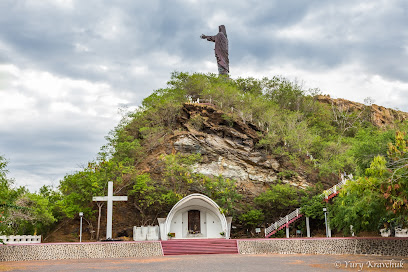
Tais Market
Discover the culture, crafts, and cuisine at Tais Market, a vibrant traditional market in Dili, Timor-Leste, where local life comes alive.
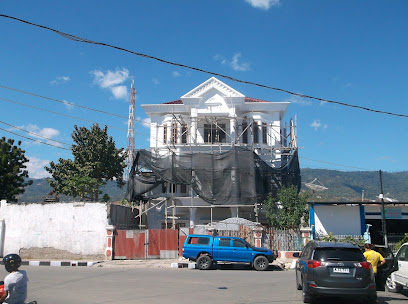
Largo de Lecidere
Explore Largo de Lecidere, a tranquil park in Dili, Timor-Leste, perfect for relaxation, jogging, and enjoying stunning coastal views in a serene environment.
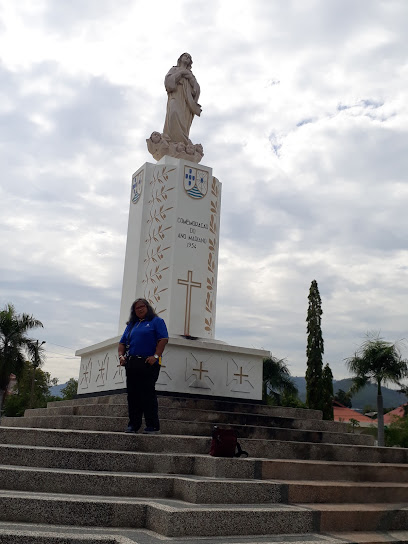
Immaculate Conception Cathedral
Discover the architectural beauty and spiritual significance of the Immaculate Conception Cathedral, a must-visit landmark in Dili, East Timor.
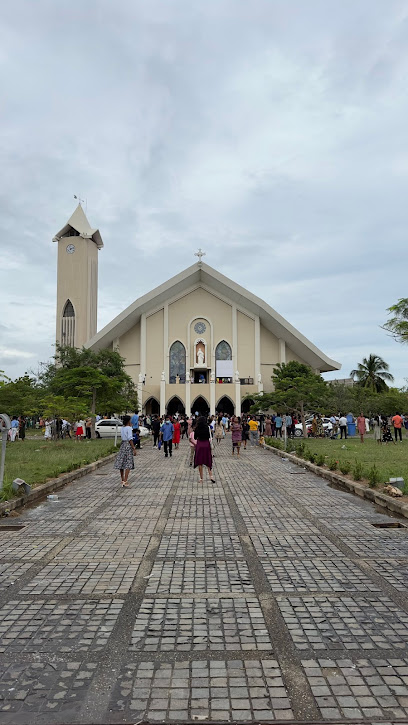
Church of Saint Anthony of Motael
Discover the historical and architectural wonder of the Church of Saint Anthony of Motael in Dili, Timor-Leste's oldest Catholic church.
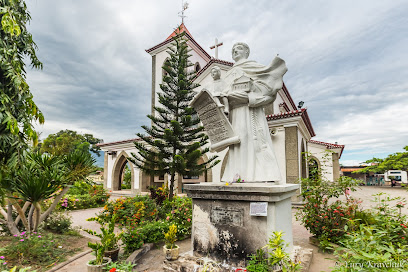
Statue of Youth
Discover the Statue of Youth in Dili, a powerful symbol of hope and resilience, capturing the spirit of Timor-Leste's vibrant culture and youthful aspirations.
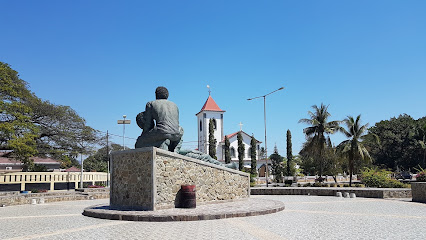
Tanha Minha LDA
Discover the rich flavors of India at Tanha Minha LDA, the top-rated Indian restaurant in Motael, where every dish tells a story.
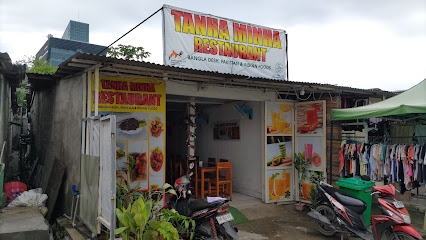
Motael Garden
Discover tranquility at Motael Garden in Dili, a lush park perfect for relaxation, picnics, and enjoying the beauty of Timor-Leste's nature.
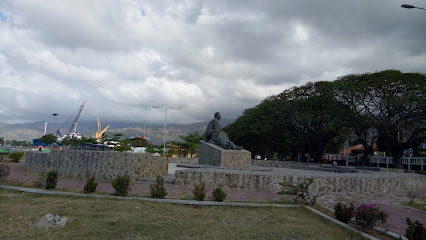
Taman Mini D. Antonio De Motael
Discover the charm of Taman Mini D. Antonio De Motael, a serene park in Dili perfect for nature lovers and cultural enthusiasts alike.
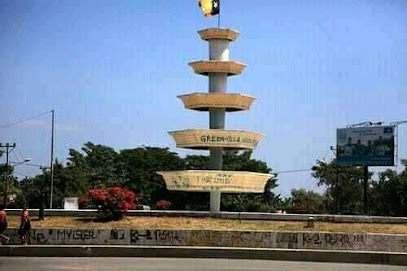
Monumento 12 De Novembro
Explore the iconic Monumento 12 De Novembro in Dili, a powerful symbol of East Timor's struggle for freedom and resilience, enveloped in rich history and culture.
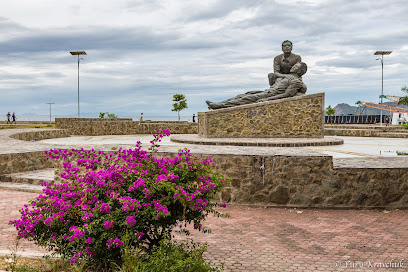
Monument to Our Lady
Explore the Monument to Our Lady in Dili, a serene landmark embodying Timor-Leste's faith, culture, and breathtaking views.
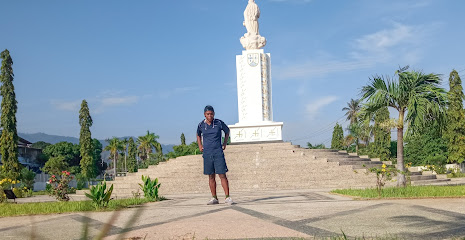
Unmissable attractions to see
Cristo Rei of Dili
Experience the breathtaking views and spiritual significance of Cristo Rei of Dili, a must-visit landmark in Timor-Leste.
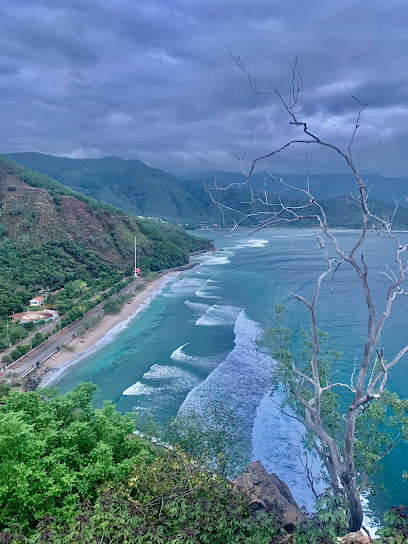
Tais Market
Explore Tais Market in Dili, Timor-Leste: A vibrant traditional market filled with local crafts, delicious street food, and rich cultural experiences.
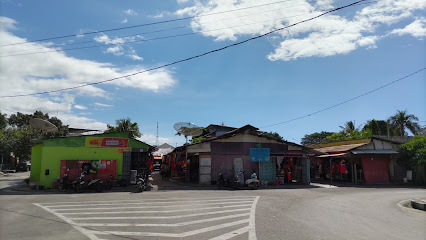
Centro Nacional Chega!
Explore the poignant history of East Timor at Centro Nacional Chega!, a must-visit museum in Dili that tells the story of resilience and independence.
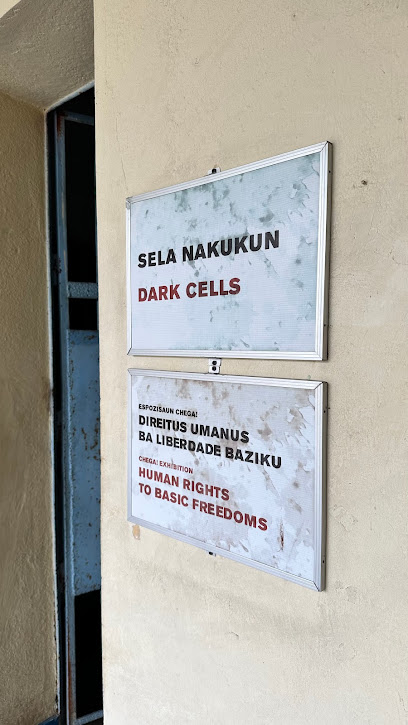
Largo de Lecidere
Explore the lush landscapes and tranquil ambiance of Largo de Lecidere, a beautiful park in Dili, Timor-Leste, perfect for relaxation and nature walks.
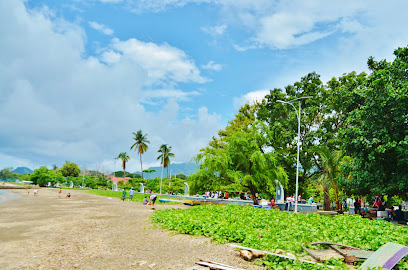
Immaculate Conception Cathedral
Discover the serene beauty and rich history of Immaculate Conception Cathedral, the heart of spirituality in Dili, Timor-Leste.
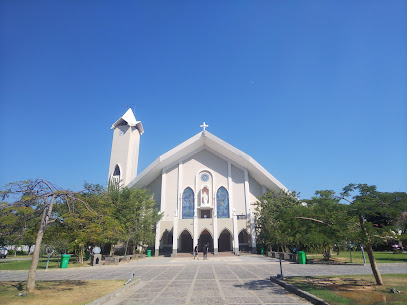
Statue of Pope John Paul II
Explore the Statue of Pope John Paul II in Dili, a majestic symbol of faith, resilience, and history nestled against stunning coastal views.
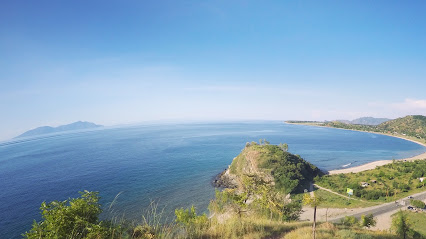
Motael Garden
Discover tranquility and vibrant local culture at Motael Garden, Dili’s serene urban park, perfect for relaxation and cultural immersion.
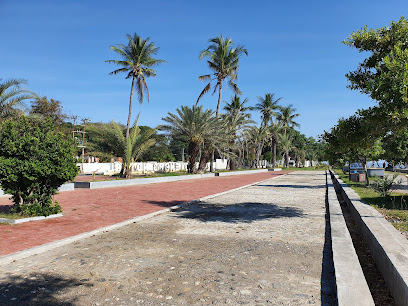
Taman Mini D. Antonio De Motael
Experience the beauty and culture of Dili at Taman Mini D. Antonio De Motael, a serene park perfect for relaxation and exploration.
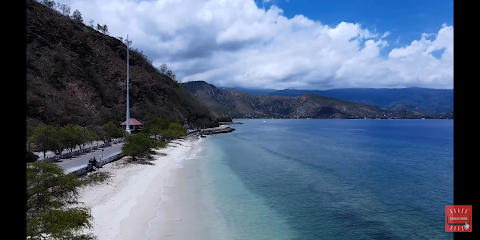
Posto da Polícia Nacional de Timor-Leste Vemasse
Explore the cultural significance of Posto da Polícia Nacional de Timor-Leste Vemasse, a captivating tourist attraction in the heart of Caicua.

Essential places to dine
Caz Bar
Discover the vibrant flavors of Dili at Caz Bar - where local cuisine meets international flair in an inviting atmosphere.
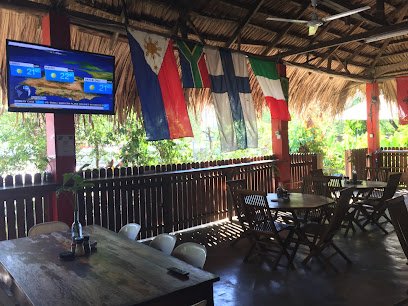
Castaway Bar and Restaurant
Discover delicious local cuisine and vibrant atmosphere at Castaway Bar and Restaurant in Dili - your perfect dining destination!
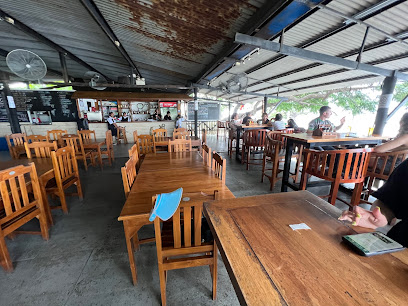
Osteria Italiana
Experience authentic Italian flavors at Osteria Italiana in Dili – where every meal feels like a journey through Italy's culinary heritage.
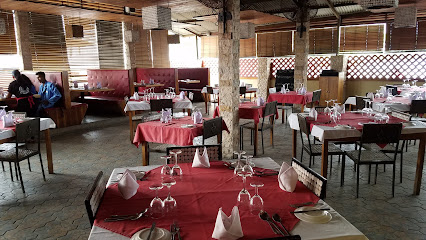
El Legendario
Experience the flavors of Timor-Leste at El Legendario, where fresh ingredients meet vibrant culinary traditions in Dili.
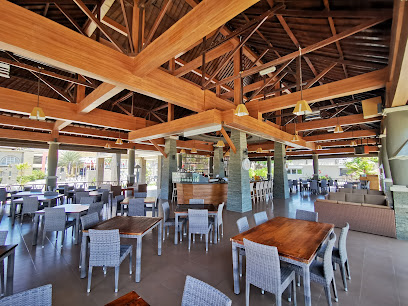
Lahori Kabab
Discover authentic Asian flavors at Lahori Kabab in Dili – where every bite tells a story of culinary excellence.
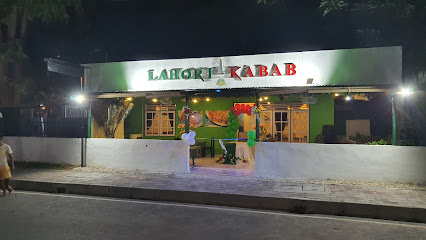
Tito's Restaurant
Experience the flavors of Portugal at Tito's Restaurant in Dili - A culinary journey awaits every visitor.
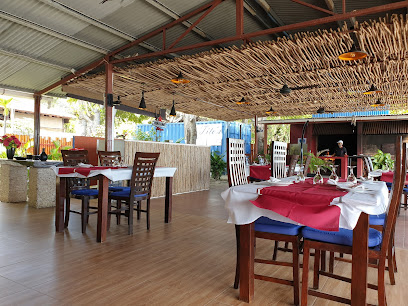
Dilicious Timor
Discover authentic Timorese flavors at Dilicious Timor in Dili - a culinary journey awaits!
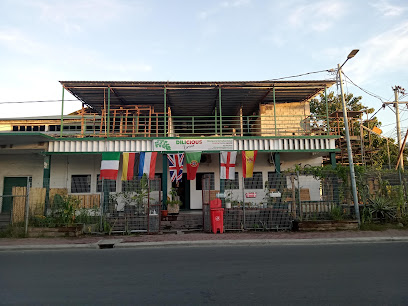
Great Wall Restaurant
Experience the rich flavors of authentic Chinese cuisine at Great Wall Restaurant in Díli – a culinary delight for every tourist.
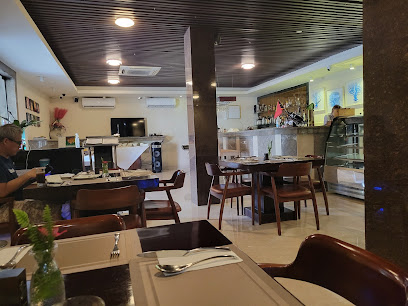
Nha Casa Restaurant
Discover the culinary delights of Timor-Leste at Nha Casa Restaurant in Dili – where authentic flavors meet welcoming hospitality.
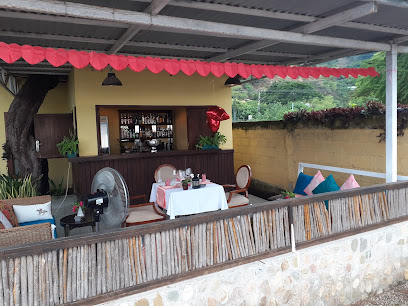
Bos Sate
Discover authentic Timorese flavors at Bos Sate in Dili - where every bite tells a story.
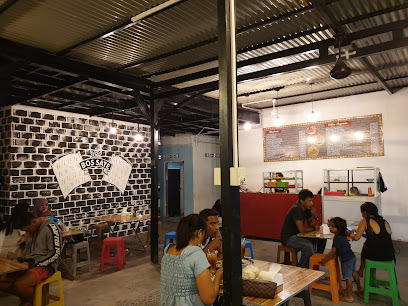
Markets, malls and hidden boutiques
Timor Plaza
Explore Timor Plaza in Dili: A vibrant shopping mall featuring international brands, local cuisine, and entertainment for an unforgettable experience.
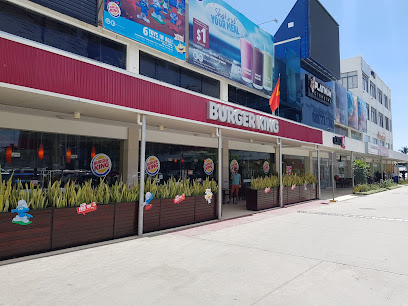
Oil Paintings For Sale
Discover the vibrant local art scene of Timor-Leste at Oil Paintings For Sale, where every canvas tells a story.
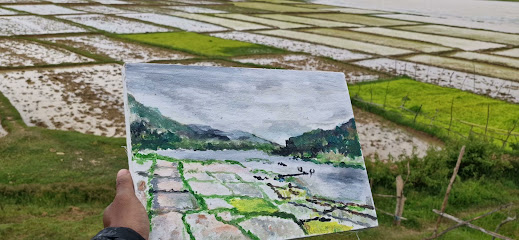
Lita Store
Discover the vibrant flavors of Timor Leste at Lita Store, Dili's premier supermarket offering local and international products in a welcoming atmosphere.
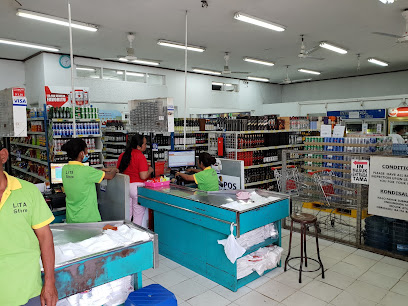
Dili Mart
Explore Dili Mart: A vibrant grocery store in Dili, where local flavors meet international goods for an enriching shopping experience.
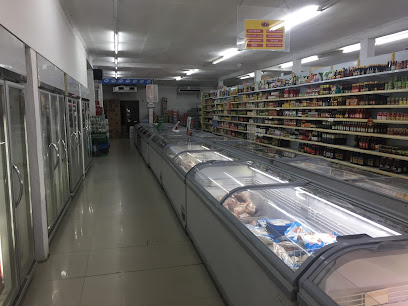
Things and Stories
Explore Things and Stories in Dili for unique Timorese artifacts and home goods, embracing the rich culture of Timor-Leste.
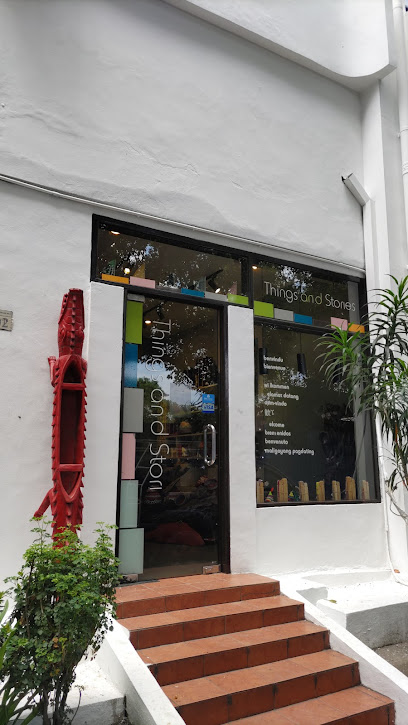
Timor Leste
Explore the captivating landscapes and rich cultural heritage of Timor Leste, a hidden gem in Southeast Asia that offers unforgettable adventures.
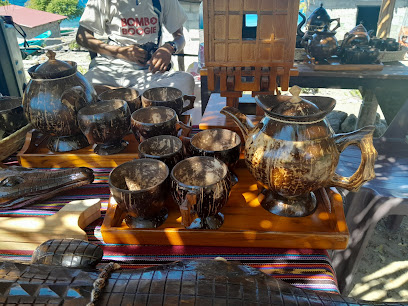
Arte Vida
Discover unique handcrafted souvenirs at Arte Vida, where Timor-Leste's culture and craftsmanship come alive in every piece.
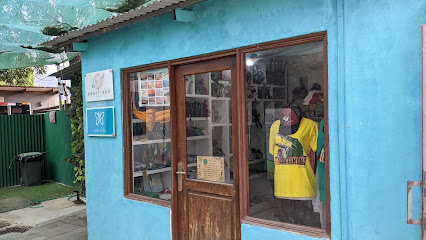
Centro Etnique
Discover the vibrant culture of Timor-Leste at Centro Etnique, where unique souvenirs and local craftsmanship await.
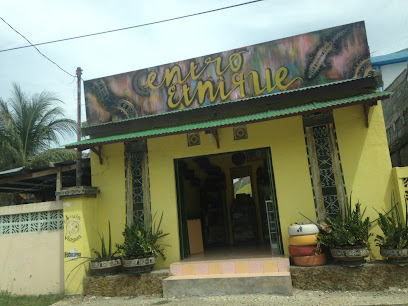
HAU TIMOR
Explore the cultural richness of East Timor at HAU TIMOR, where unique souvenirs and local artistry meet.
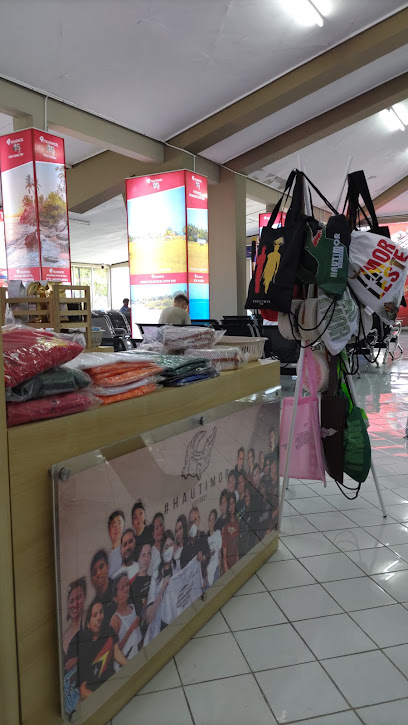
Kios Lul-Lei
Experience authentic Timorese culture and shop unique local products at Kios Lul-Lei in Dili, the heart of Timor-Leste.
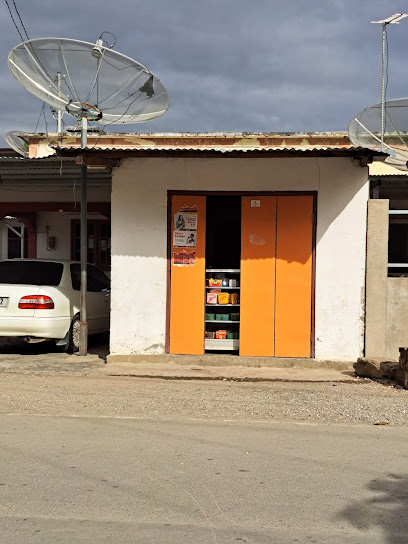
Timor leste
Uncover the natural beauty and cultural richness of Timor-Leste, a Southeast Asian paradise waiting to be explored.

Lenlen stula dili stores
Explore the vibrant culture of Timor-Leste through unique handcrafted gifts at Lenlen Stula Dili Stores in Dili.

Dili Store
Explore the vibrant Dili Store for unique Timorese handicrafts and local treasures in the heart of Díli, Timor-Leste.
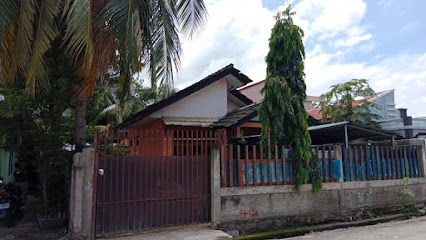
Essential bars & hidden hideouts
Caz Bar
Discover the vibrant flavors and welcoming atmosphere at Caz Bar in Dili, where local culture meets culinary delight.
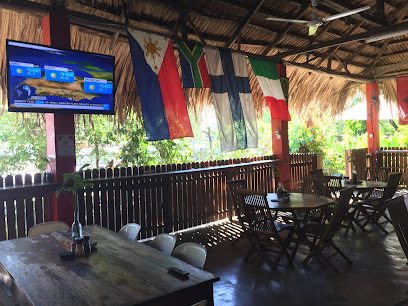
Castaway Bar and Restaurant
Discover the perfect blend of local flavors and breathtaking views at Castaway Bar and Restaurant in Dili, a must-visit for every traveler.
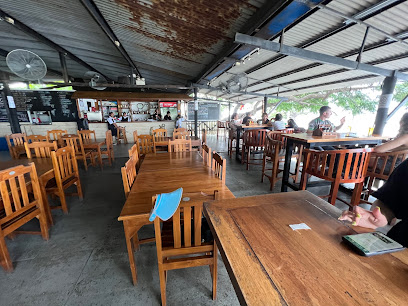
Spooners Bar and Grill
Experience the vibrant nightlife of Dili at Spooners Bar and Grill, where delicious food and great company meet.
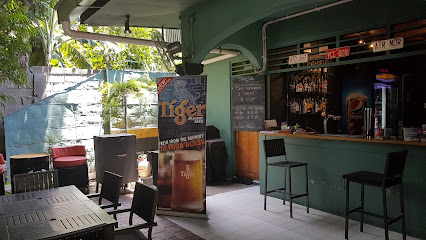
Black Box Cafe and Bar
Discover the vibrant nightlife at Black Box Cafe and Bar, featuring live music, delicious food, and a lively atmosphere in the heart of Dili.
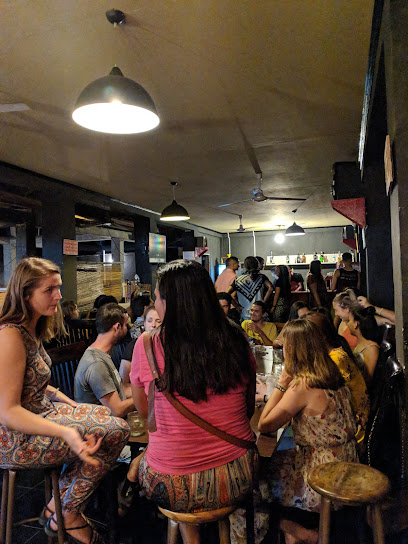
Tower Cafe & Bar
Discover Tower Cafe & Bar in Dili for stunning views, delicious local dishes, and a vibrant atmosphere perfect for relaxation.
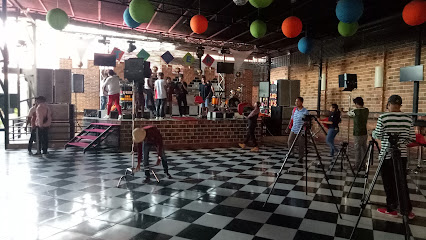
Olé Bar & Tapas
Discover the lively ambiance and delicious tapas at Olé Bar & Tapas in Dili, where flavors meet friendship in a vibrant social setting.
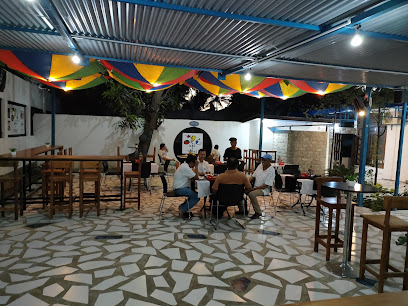
Ponkys Cocktail Lounge
Discover Ponkys Cocktail Lounge in Dili for exquisite cocktails and a vibrant nightlife experience that reflects the spirit of Timor-Leste.
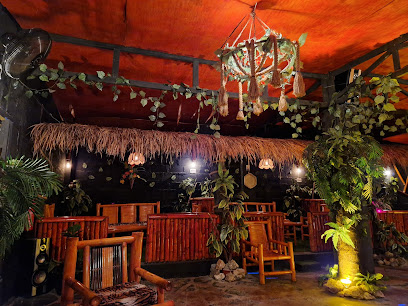
ARMY MADRUGADA
Discover the lively karaoke scene at Army Madrugada in Díli, where unforgettable nights and local camaraderie await.
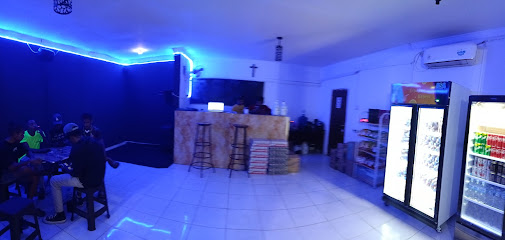
Haksolok Bar
Discover Haksolok Bar in Dili – a vibrant hub for relaxation, local culture, and refreshing drinks, perfect for tourists seeking a lively experience.
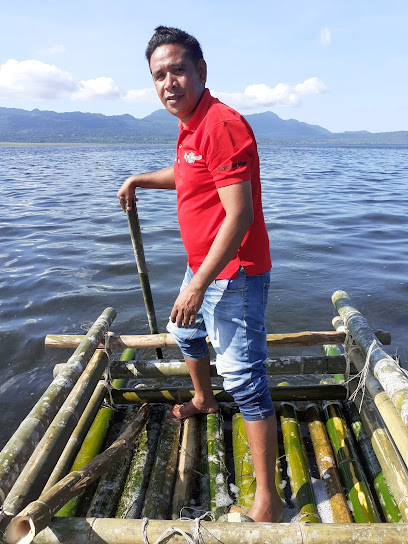
Maria dili
Experience Dili's vibrant nightlife at Maria Dili, a lively bar offering refreshing drinks and a taste of local culture in the heart of Timor-Leste.

Local Phrases
-
- HelloBondia
[bon-dee-ya] - GoodbyeAdeus
[ah-deh-oos] - YesSim
[seem] - NoLae
[lie] - Please/You're welcomeFavor
[fah-vohr] - Thank youObrigadu
[oh-bree-gah-doo] - Excuse me/SorryDeskupa
[des-koo-pah] - How are you?Di'ak ka lae?
[dee-ahk kah lie] - Fine. And you?Di'ak. Ita?
[dee-ahk. ee-tah] - Do you speak English?Ita sei hatene Ingles?
[ee-tah say hah-teh-neh een-glehs] - I don't understandHau la komprende
[hah-oo lah kohm-prehn-deh]
- HelloBondia
-
- I'd like to see the menu, pleaseHau hakarak hare menu, favor
[hah-oo hah-kah-rahk hah-reh meh-noo, fah-vohr] - I don't eat meatHau la manan karne
[hah-oo lah mah-nahn kahr-neh] - Cheers!Saude!
[sah-oo-deh] - I would like to pay, pleaseHau hakarak selu, favor
[hah-oo hah-kah-rahk seh-loo, fah-vohr]
- I'd like to see the menu, pleaseHau hakarak hare menu, favor
-
- Help!Ajuda!
[ah-joo-dah] - Go away!Ba oin!
[bah oh-een] - Call the Police!Hara Polisia!
[hah-rah poh-lee-see-ah] - Call a doctor!Hara dotora!
[hah-rah doh-toh-rah] - I'm lostHau mate
[hah-oo mah-teh] - I'm illHau moras
[hah-oo moh-rahs]
- Help!Ajuda!
-
- I'd like to buy...Hau hakarak sosa...
[hah-oo hah-kah-rahk soh-sah] - I'm just lookingHau deit hakerek
[hah-oo deh-eet hah-keh-rek] - How much is it?Kuantu nia prenu?
[kwan-too nee-ah preh-noo] - That's too expensiveIha barak liu
[ee-hah bah-rahk lee-oo] - Can you lower the price?Ita bele hama prenu?
[ee-tah beh-leh hah-mah preh-noo]
- I'd like to buy...Hau hakarak sosa...
-
- What time is it?Oras hira agora?
[oh-rahs hee-rah ah-go-rah] - It's one o'clockOhin oras ida
[oh-heen oh-rahs ee-dah] - Half past (10)Oras ne'e nia isin (10)
[oh-rahs neh-eh nee-ah ee-seen (10)] - MorningTarde
[tah-deh] - AfternoonTuku leten
[too-koo leh-tehn] - EveningTuku kalan
[too-koo kah-lahn] - YesterdayHoriseik
[hoh-ree-sake] - TodayOhin loron
[oh-heen loh-rohn] - TomorrowAban loron
[ah-bahn loh-rohn] - 1Ida
[ee-dah] - 2Rua
[roo-ah] - 3Tolu
[toh-loo] - 4Apat
[ah-paht] - 5Lima
[lee-mah] - 6Neen
[neh-ehn] - 7Hitu
[hee-too] - 8Ualu
[wah-loo] - 9Sia
[see-ah] - 10Sanulu
[sah-noo-loo]
- What time is it?Oras hira agora?
-
- Where's a/the...?Iha nebe...
[ee-hah neh-beh] - What's the address?Enderecu saida?
[ehn-deh-reh-soo sah-ee-dah] - Can you show me (on the map)?Ita bele hatudu ba hau? (iha mapa)
[ee-tah beh-leh hah-too-doo bah hah-oo? (ee-hah mah-pah)] - When's the next (bus)?Bainhira ona (bus)?
[bah-ee-nee-rah oh-nah (boos)?] - A ticket (to ....)Bilhete (ba ...)
[beel-eh-teh (bah ...)]
- Where's a/the...?Iha nebe...
History of Motael
-
Motael, located in the heart of Dili, bears the marks of Portuguese colonial history that began in the 16th century. The colonial architecture, including churches and administrative buildings, reflects the European influence that shaped the region's identity. The Motael Church, built in the 19th century, stands as a testament to this era and continues to serve as a focal point for the local Catholic community.
-
Motael played a significant role during the struggle for East Timorese independence from Portuguese rule and later Indonesian occupation. In 1975, the invasion by Indonesia led to widespread violence and displacement. Motael was a site of resistance, where local activists organized protests and gatherings. The area remains important for commemorating the resilience of the Timorese people during these turbulent times.
-
One of the most pivotal events in Motael's recent history is the Santa Cruz Massacre, which occurred on November 12, 1991. While the massacre took place at the Santa Cruz Cemetery, the impact resonated throughout Dili, including Motael. Thousands of people mourned and protested, and the event became an international symbol of the struggle for human rights in East Timor, leading to increased global attention and support for the independence movement.
-
Following the restoration of independence in 2002, Motael has experienced a cultural renaissance. The neighbourhood has become a hub for local artists, musicians, and cultural events. Traditional dances, music, and art exhibitions celebrate Timor-Leste's rich heritage, while community centers and local markets foster an atmosphere of collaboration and cultural exchange. The revitalization efforts aim to preserve the unique Timorese identity while embracing modern influences.
-
Today, Motael is characterized by its vibrant community life, where local markets and social gatherings reflect the resilience of the Timorese people. The area is known for its friendly atmosphere and the strong sense of community among residents. Local initiatives, including educational programs and community development projects, aim to empower the youth and ensure the continuation of cultural traditions in the face of globalization.
Motael Essentials
-
Motael is easily accessible from various neighbourhoods in Dili. From the airport, you can take a taxi directly to Motael, which typically takes around 15-20 minutes. If you are in the city centre, local minibuses (known as 'microlets') frequently travel to Motael, with stops along the way. Alternatively, walking from nearby areas such as Praia dos Famosos and Colmera can also be an enjoyable option as they are within a reasonable distance.
-
Motael is a compact neighbourhood and can be explored on foot. However, if you prefer, you can use local taxis or ride-hailing apps like Grab for convenient transport. There are no trains or subways in Dili, but local minibuses are available for longer distances. Bicycles can also be rented from local shops, providing an eco-friendly way to explore the area.
-
Motael is generally safe for tourists, but it is wise to stay vigilant. Avoid walking alone at night in poorly lit areas, particularly around the waterfront. While violent crime is rare, petty theft can occur, especially in crowded areas. Always keep your belongings secure and be cautious when approached by strangers.
-
In case of an emergency, dial 112 for police assistance or 118 for medical emergencies. Hospitals and clinics are available in Dili, with the Hospital Nacional Guido Valadares being the main facility. It's advisable to have travel insurance that covers medical emergencies. For minor health concerns, local pharmacies are accessible in Motael.
-
Fashion: Do dress modestly, especially when visiting religious sites. Avoid revealing clothing. Religion: Do respect local customs; cover your shoulders and knees when entering churches. Public Transport: Do be polite and give up your seat for the elderly. Don't eat or drink on public transport. Greetings: Do greet with a handshake and a smile. A slight bow of the head shows respect. Eating & Drinking: Do try local dishes and accept invitations to share meals. Don't refuse food, as it may offend your host.
-
To experience Motael like a local, explore the vibrant markets where you can find fresh produce and traditional goods. Make sure to visit the local cafes and eateries to sample local dishes like 'bifana' (pork sandwich) and traditional coffee. Engaging in conversations with locals can provide insights into their culture and history. For a unique perspective, consider joining a local cooking class or cultural workshop.
Nearby Cities to Motael
-
Things To Do in Aileu
-
Things To Do in Gleno
-
Things To Do in Ermera
-
Things To Do in Same
-
Things To Do in Bobonaro
-
Things To Do in Suai
-
Things To Do in Baucau
-
Things To Do in Lospalos
-
Things To Do in Darwin
-
Things To Do in Makassar
-
Things To Do in Manado
-
Things To Do in Bali
-
Things To Do in Balikpapan
-
Things To Do in Surabaya
-
Things To Do in Yogyakarta



